5 Surprising Effects of Eating Soy, Say Dietitians

When you hear the word “soybeans,” the first things that may come to mind are all the health claims you remember from years ago. Wasn’t there talk about soy causing “man-boobs?” And what about those possible links to breast cancer, thyroid disease, and dementia? But those claims have not been clinically substantiated, according to experts at Harvard T.H. Chan School of Public Health.
“Soy is probably the most controversial nutrition topic out there,” says Kathryn Piper, RD, LD, a registered dietitian and founder of The Age-Defying Dietitian. “The different outcomes in the research are most likely related to the variations in how soy is studied.”
Soy can be safely consumed several times a week especially when eaten as an alternative to red and processed meats, say dietitians we spoke with.
“Numerous studies support the safety of 25 grams of soy protein per day,” says Piper. “Soy is nutrient-dense, providing protein, fiber, calcium, and B vitamins and it appears to have a positive impact on those with heart disease and diabetes and women in menopause.”
Let’s consider the potential benefits of eating more soy. Read on, and for more, don’t miss 4 Surprising Effects of Cottage Cheese.
Soy may support weight loss
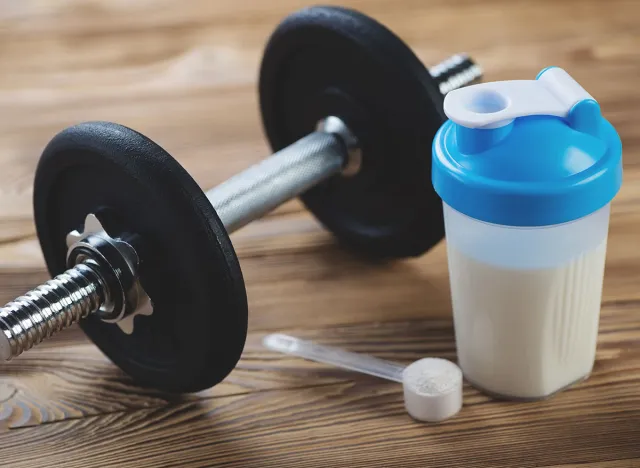
Soy is a rich source of protein, which is critical for repairing and building muscle. And as we’ve reported many times, muscle is metabolically active. The more muscle you have, the more calories you burn and the less fat you’re likely to carry on your frame.
Protein is also satiating, keeping you feeling full longer and fighting cravings for sugary carbohydrates. “Soy may play a positive role on insulin resistance, fatty acid metabolism, and other hormonal, cellular, or molecular changes associated with weight gain,” says medical review board member Lauren Manaker, MS, RDN, a registered dietitian nutritionist and founder of Nutrition Now Counseling.
A study in the International Journal of Medical Sciences that looked at soy’s impact on obese people found that consuming dietary soy protein regularly reduced body weight, fat mass, and cholesterol levels.
Soy may protect your heart
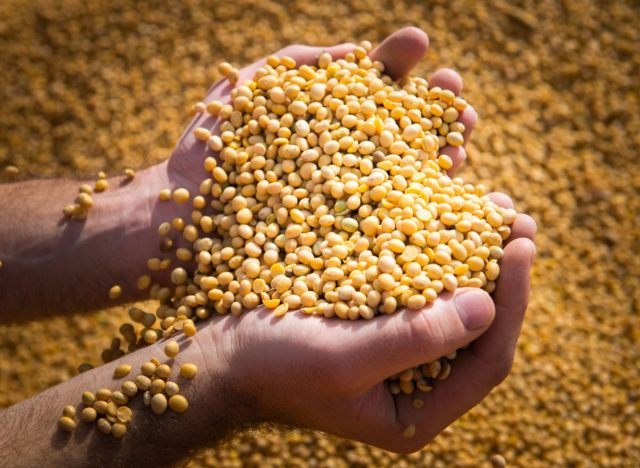
While a diet rich in soy protein may help you lose weight and take some strain off your heart, there are other circulatory perks to gain from eating soy and soy products. “Soy can help lower cholesterol and reduce your risk of cardiovascular disease,” says Eatthis.com medical review board member Toby Amidor, MS, RD, author of Diabetes Create Your Plate Meal Prep Cookbook. She cites a 2019 meta-analysis published in the Journal of Nutrition, which found that soy protein reduced low-density lipoprotein, the so-called “bad” cholesterol, by 3 to 4% in adults.
Soy may help lower risk of these silent killers.
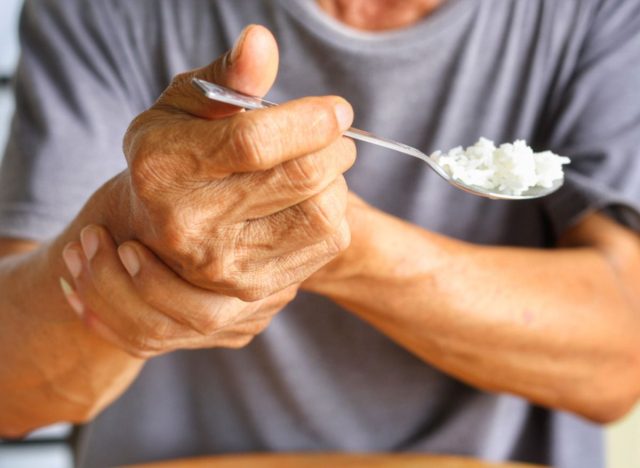
Two other conditions play a key role in heart disease, heart attacks, and strokes that eating more soy may alleviate—high blood pressure and inflammation, says Amidor.
Chronic low-grade inflammation is a condition where the immune system cells consistently flood the body due to poor diet, smoking, alcohol abuse, and other lifestyle factors. This covert assault may damage tissues, such as the linings of arteries, which can trigger another silent killer—high blood pressure.
Both inflammation and high blood pressure may cause plaques to develop in arteries that can break off and trigger blood clots that initiate heart attacks and strokes. Two recent studies suggest supplementing the diet with soy protein may reduce blood pressure and chronic inflammation.
Soy may strengthen your bones.
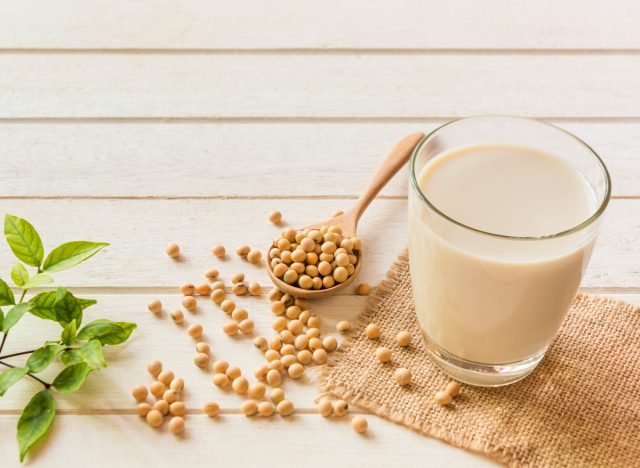
As you get older, your risk of osteoporosis increases. Half of all adults over 50, some 54 million Americans (including men), are at risk of breaking a bone due to low bone density, according to the National Osteoporosis Foundation. Eating more soy may help protect you from fractures.
“The isoflavones in soy foods are linked to improved bone mineral density and preventing osteoporosis-related bone loss, regardless of your weight,” says Manaker. Isoflavones are a type of phytoestrogen, a plant-derived compound that’s found in more abundance in soybeans and soy products than in any other food.
Soy may protect against breast cancer.
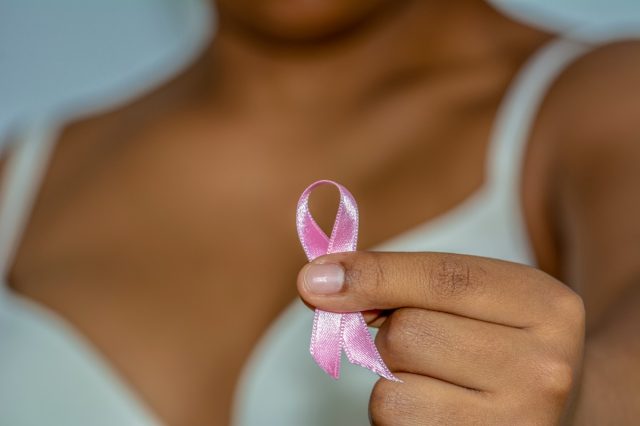
High levels of estrogen have been associated with breast cancer. For that reason, women with breast cancer on hormone therapy were once told to avoid eating soy products. However, moderate soy consumption—up to two servings of tofu, soy milk, or edamame daily—does not increase the risk of breast cancer, according to the Mayo Clinic. And eating soy products may actually have a protective effect, according to a large study in the journal Cancer, which found that isoflavone, the major phytoestrogen in soy, was associated with reduced mortality from not just breast cancer but all causes.
Other research published in 2022 by the American Association for Cancer Research found that soy might protect young girls from developing breast cancer later in life, says Amidor. The study looked at the diets of 329 girls from puberty until 2 years after first menstruation and found an inverse association between soy consumption and absolute fibroglandular volume, which is indicative of a lower risk of breast cancer.









